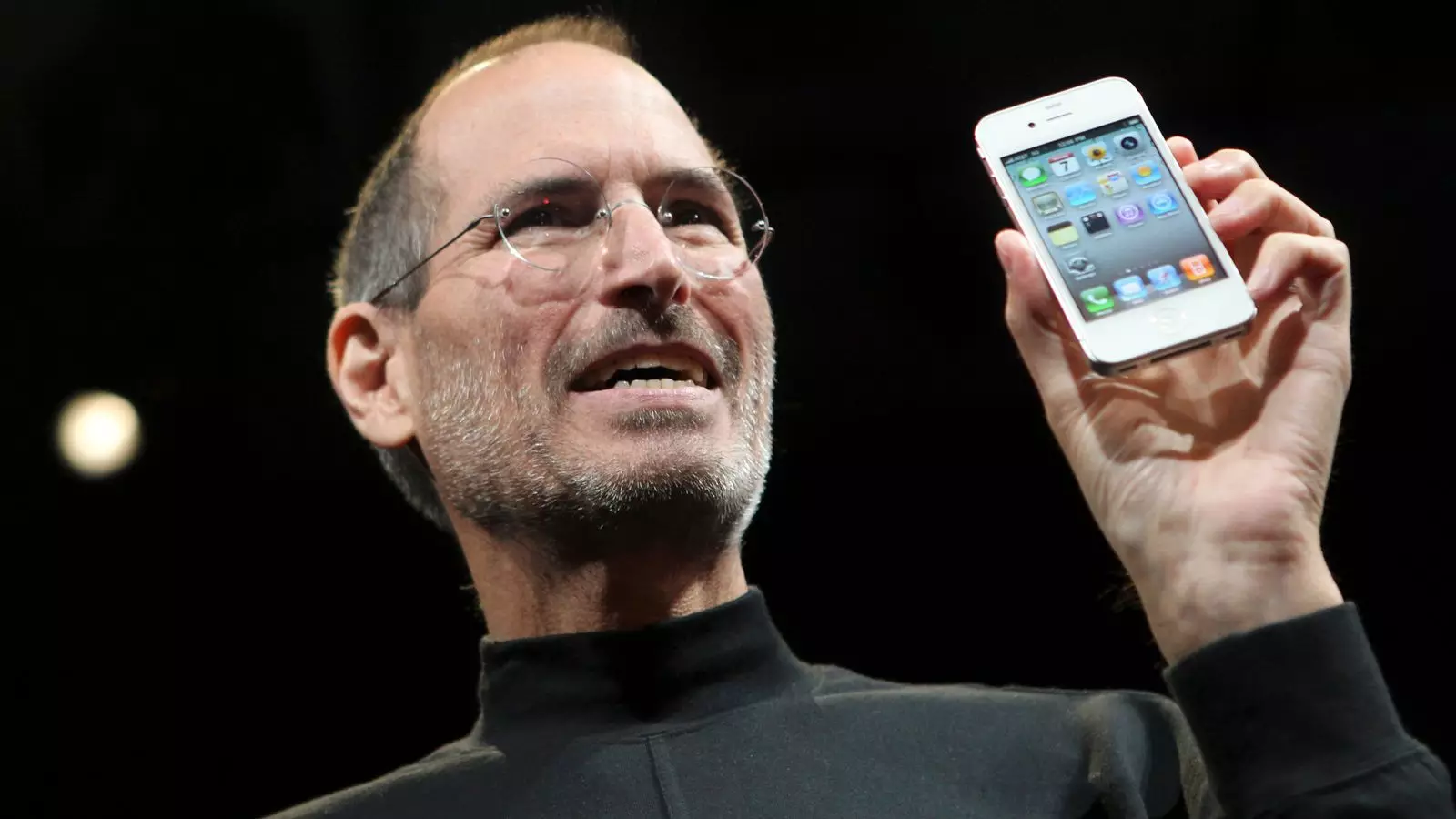The political landscape in the UK has witnessed a vast shift over the years, but recent remarks by Cabinet Minister Peter Kyle suggest a remarkable evolution is on the horizon—led by none other than Rachel Reeves, the nation’s Chancellor. Comparing her to Apple’s iconic Steve Jobs is a bold statement that carries weight; it paints a picture of an innovative leader ready to embark on ambitious economic rejuvenation. Much like Jobs, who resurrected a floundering company by reimagining its entire approach to technology and consumer interaction, Reeves is positioned to reinvigorate an economy that many feel is gasping for breath after years of stagnation and strife.
Jobs’ return to Apple is synonymous with visionary products that disrupted the market and reshaped the consumer experience. Though it may sound hyperbolic, those expecting Reeves to innovate in a similar fashion hold a point. The government’s announcement to channel £86 billion towards scientific advancement—specifically, focusing on pivotal areas such as drug development and technology—echoes the same spirit of transformation. It is a pledge that, if executed effectively, could catalyze one of the most substantial economic recoveries in recent history.
Funding the Future: The Economic Allocation Dilemma
The narrative around funding the ambitious £500 million allocated to each region in England is critical. How will this allocation not only stimulate scientific progress but also address regional inequalities? Kyle’s mention of tax revenues raised in the autumn hints at a broader, possibly controversial, fiscal approach. There’s an inherent risk associated with heavy reliance on taxpayer contributions to fuel these investments. Critics may argue that it strains the average citizen, especially in the wake of soaring living costs and energy prices. However, if the funds are directed with precision and transparency towards transformative projects, the dividends could significantly outweigh the initial investment.
It’s important to note the broader context in which these financial decisions are being made. The looming recession and labor market uncertainties are shadows that may overshadow Reeves’ plans. The comparison to Apple is compelling, but one must consider if the British economy is truly ripe for a radical rebirth. Notably, the emphasis on future innovations like high-tech vaccines and space sector investments could send a message of hope, but it is equally important to engage with the public’s immediate material challenges. How do we balance visionary projects with the pressing need for social security in these hard economic times?
Challenging the Status Quo: A Fiscal Tightrope
Reeves faces an uphill battle as she walks the tightrope of fiscal responsibility. While the government seeks to enhance educational funding—casting a net of opportunity over future generations—the reality remains that without a healthy economy, these efforts could be in vain. The Chancellor’s self-imposed fiscal rules—barring borrowing for day-to-day spending—place limitations on how the government can utilize its financial arsenal. This balancing act raises questions: Can short-term austerity yield long-term growth? Or does it stifle innovation in crucial sectors that could benefit the economy?
Furthermore, the government’s somewhat badge-wearing of fiscal restraint might be viewed as a double-edged sword. The cuts some departments may face as a result of Reeves’ allocations could fuel discontent among those feeling disenfranchised or neglected. Critics will likely point to the potential injustice faced by certain social services that could suffer under economic reallocations aimed at ambitious projects. This creates a fertile ground for political debate, particularly within the context of a Labour government that is expected to champion social equity.
Beyond the Numbers: The Real Challenge of Public Perception
At the heart of this narrative is the challenge of public perception. Engaging a skeptical populace that has seen promises made and broken in the past is no easy task. The fallout from past cuts, such as those to universal winter fuel payments, has left scars that cannot be ignored. While government efforts to restore eligibility for these payments signal a positive shift, the lingering doubt about the administration’s commitment to safeguarding vulnerable populations remains.
The true strength of Rachel Reeves’ endeavor will not solely be measured by the amounts allocated in spending reviews or forecasts of economic growth. It’s about cultivating trust and demonstrating the tangible benefits of innovation—connecting the dots between investment and the lives of average citizens. This requires not only strategic foresight but an emotional engagement with the electorate steeped in authenticity and transparency.
Reeves holds the potential to inspire a renaissance for the economy, but whether this will translate into a palpable reality for the British public remains to be seen.


Leave a Reply